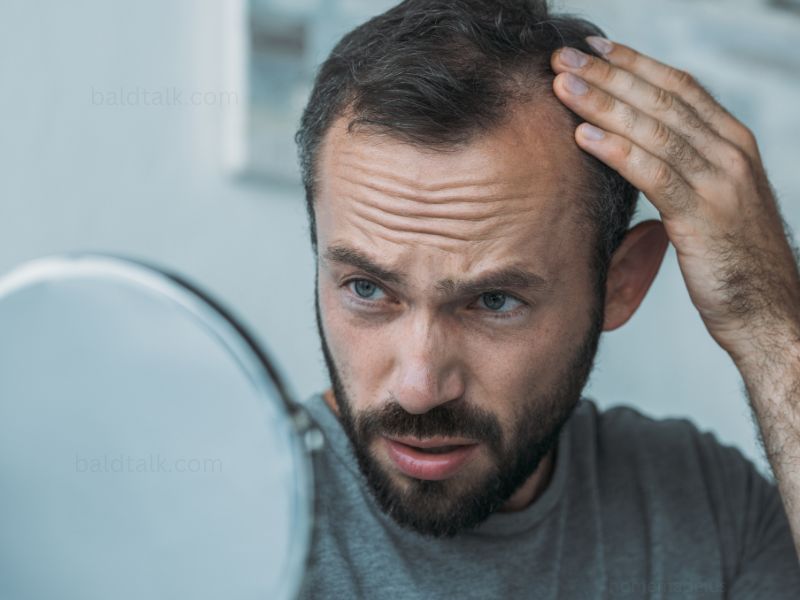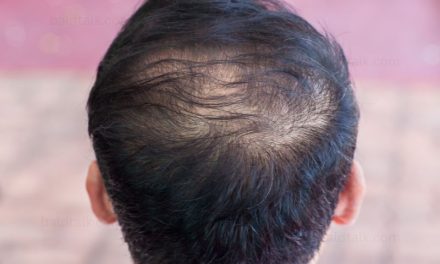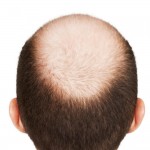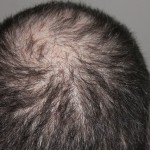An Intimate Journey into Hair Loss
Hair loss. That’s a phrase that can send chills down anyone’s spine. We’ve all seen it—maybe in a parent, a friend, or even ourselves. It’s a universal sign of aging, but also a phenomenon that can hit at any age, undermining confidence and causing considerable stress. For those trying to navigate this tricky landscape, let’s embark on a comprehensive guide to understanding hair loss.
What’s Normal, What’s Not
First things first, let’s get something straight: losing hair is normal. Yes, you heard that right. On any given day, you can lose anywhere between 50 to 100 hairs. Now, you might think, “That sounds like a lot!” But when you consider that the average scalp has about 100,000 hair follicles, the number doesn’t seem so daunting.
However, when the volume of lost hair starts exceeding the norm, or you notice thinning patches, that’s when it might be time to pay attention. These could be early signs of hair loss. And in such cases, the sooner you address it, the better your chances of managing it effectively.
The Science Behind Hair Loss
Let’s delve a little deeper into the science behind hair loss. Your hair growth follows a cycle, which consists of three stages: Anagen (growth phase), Catagen (transition phase), and Telogen (resting phase). Each hair follicle is independent and goes through the cycle at different times; otherwise, all your hair would fall out at once. Under normal circumstances, your hair grows about half an inch per month.
However, factors like age, genetics, and health conditions can disrupt this cycle. For example, hereditary hair loss, also known as androgenetic alopecia, is a common cause of hair loss, affecting millions worldwide. In this condition, the hair growth cycle shortens, and the hairs are not as thick or sturdy as before. Over time, the Anagen stage may stop altogether, leading to permanent hair loss.
How Stress Affects Hair Loss
You might have heard people say, “I’m losing hair over this!” when they’re under stress. While it may seem like an exaggeration, there’s truth in the statement. Stress can indeed trigger hair loss. Certain stressful events can push many hair follicles into the resting phase, and a few months later, affected hairs might fall out suddenly when simply combing or washing your hair.
While it can be alarming, the good news is that this type of hair loss, known as telogen effluvium, is usually temporary. Your hair will likely grow back once the stress is managed.
Diet and Hair Loss: Are They Connected?
Absolutely, diet and hair loss are connected! Just like every other part of your body, your hair needs a balanced diet to grow healthily. A lack of protein in your diet can push more hairs into the resting phase. Similarly, iron deficiency is a common cause of hair loss, especially in women.
On the flip side, consuming a diet rich in specific nutrients can help promote hair health. For instance, foods rich in omega-3 fatty acids, like salmon and avocados, can help keep your hair shiny and healthy. Vitamins A, B, C, and E, as well as certain minerals like iron and zinc, can contribute to healthier hair.
Hair Loss in Women: A Significant Issue
Hair loss is not a men-only issue. Many women experience hair loss, and the experience can be equally, if not more, distressing due to societal pressures and beauty standards. Female pattern hair loss, also known as androgenetic alopecia in women, usually presents as a general thinning across the whole scalp, with a preserved hairline. It’s worth noting that in women, hair loss can also be triggered by hormonal changes, such as those that occur during menopause.
When to See a Doctor About Hair Loss
If you’re experiencing significant hair loss or noticing bald patches, it’s a good idea to consult a healthcare professional or a dermatologist. They can help determine the cause of your hair loss and suggest appropriate treatments, which might include medications, laser therapy, or in some cases, surgical procedures.
The question of when to see a doctor about hair loss is a crucial one. Often, people tend to ignore the early signs of hair loss, attributing it to temporary stress or dietary issues. While these can cause hair loss, if you notice that your hair loss persists or worsens, it’s time to book an appointment with a professional.
Recognizing the Signs
Subtle thinning on top of your head, sudden loosening of hair, full-body hair loss, and patches of scaling spreading over your scalp – these are some signs that you should seek medical advice on. Remember, hair loss can be the symptom of an underlying health condition, such as thyroid issues, anemia, or autoimmune diseases. In such cases, treating the underlying condition often helps control hair loss.
The Diagnosis Process
When you visit a doctor for hair loss, they may perform a variety of tests to determine the cause. This could include a physical examination of your scalp, blood tests to rule out conditions like anemia and thyroid disease, or a scalp biopsy to check for infections that cause hair loss. In some cases, a doctor may even perform a pull test, gently tugging on a few hairs to see how many come out. This can help them understand the stage of the shedding process.
Navigating Treatment Options
Based on the diagnosis, your doctor will help you navigate the treatment options available. Treatments for hair loss are more effective than ever, and there’s a wide range of options available depending on the cause and extent of your hair loss. These can range from medications and topical treatments to more advanced options like laser therapy and hair transplant surgery.
In all cases, remember that it’s okay to seek help for hair loss. It’s a common issue that affects many people and there’s no reason to face it alone. With the right medical advice and treatment plan, you can tackle hair loss head-on and regain your confidence.
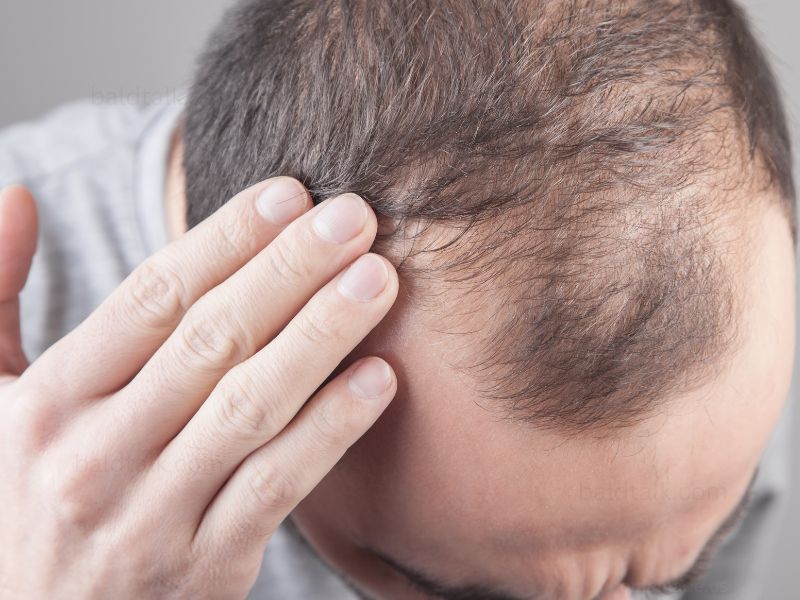
The Role of Medications in Hair Loss
Several medications on the market are designed to treat hair loss. The most commonly used are Minoxidil (Rogaine) and Finasteride (Propecia, Proscar), which have been shown to slow hair loss for many men, and in some cases, even regrow hair. However, not everyone will have the same response to these treatments, and they often need to be used consistently over time to maintain their effect.
Minoxidil is a topical medication that you apply to the scalp, where it can stimulate hair growth and slow balding. On the other hand, Finasteride is an oral medication that blocks the production of a hormone that can stop hair growth.
Of course, these are not the only treatment options. Other treatments like laser therapy, which stimulates hair follicles, and platelet-rich plasma therapy, which uses your own blood to stimulate hair growth, are also increasingly popular. Always consult with a healthcare professional to find the most suitable treatment for your specific circumstances.
The Psychological Impact of Hair Loss
Hair loss can have a profound psychological impact. Hair is often associated with beauty and youth in our society. Therefore, hair loss can lead to loss of self-esteem and feelings of unattractiveness. It’s essential to remember that it’s perfectly normal to feel this way.
Addressing these feelings can be just as important as treating the physical condition. Speaking to a mental health professional can help manage these feelings, and support groups can provide a safe space to share experiences and coping strategies.
Hair Loss and Age: An Inevitable Connection?
A common misconception is that hair loss is an inevitable part of aging. While it’s true that hair does tend to thin with age, significant hair loss is not a given. Many factors can contribute to hair loss as we age, including hormonal changes, nutritional deficiencies, and underlying health conditions. Being aware of these factors can help in taking preventative measures and managing hair loss effectively.
Prevention: Is it Possible?
Prevention of hair loss starts with understanding the underlying cause. If it’s a nutritional deficiency, a balanced diet, and supplements can help. If it’s stress-related, incorporating stress management techniques and activities like yoga and meditation may be beneficial. In the case of hereditary hair loss, using medication like Minoxidil or Finasteride as soon as you notice hair loss could help slow down the process. However, it’s always best to consult a healthcare professional before starting any new medication or supplement regimen.
Hair loss is a journey, one that can be challenging but is far from insurmountable. With the right information and resources, you can navigate this journey with confidence and grace.
Hair Loss and the Future: What’s on the Horizon?
In the world of hair loss treatments, the future looks promising. Exciting research is being done in the field of stem cell therapy, with some scientists believing that they can “reawaken” the stem cells in the hair follicle to stimulate new growth. While this treatment is not yet available, the potential for a new breakthrough is certainly there.
In conclusion, hair loss is a complex issue, but armed with the right information, you can make informed decisions about your hair health. Whether adopting a healthier diet, exploring treatment options, or finding ways to manage the psychological impact, there are many paths to navigate hair loss.
References:
Mayoclinic 1. Hair loss – Symptoms and causes – Mayo Clinic
Overview. Hair loss (alopecia) can affect just your scalp or your entire body, and it can be temporary or permanent. It can be the result of heredity, hormonal changes, medical conditions, or a normal part of aging. Anyone can lose hair on their head, but it’s more common in men.
Webmd 2. Hair Loss: Types of Alopecia and Causes of Thinning Hair
Telogen effluvium is temporary hair thinning over the scalp that occurs because of changes in the growth cycle of hair. A large number of hairs …
Aad 3. Hair loss: Who gets and causes
Alopecia areata is a disease that develops when the body’s immune system attacks hair follicles (what holds the hair in place), causing hair loss. You can lose …
Healthline 4. Everything You Need to Know About Hair Loss
Androgenic alopecia refers to hereditary hair loss, like male pattern baldness or female pattern baldness, and is also known as “pattern …
Nyhairloss 5. Understanding Hair Loss: Causes and Treatments
Hair loss occurs due to many possible causes related to an individual’s genetic makeup or other factors. Through this discussion, hair restoration …
© 2016-2023 by BaldTalk.com, an LiVenture. All rights reserved. No part of this document may be reproduced or transmitted in any form or by any means, electronic, mechanical, photocopying, recording, or otherwise, without prior written permission of LiVentures.

